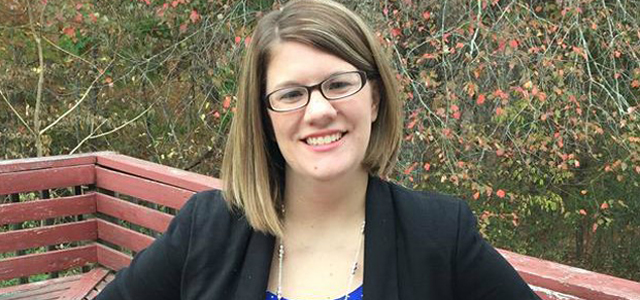When writer Rachel Held Evans passed away at the young age of 37 on Saturday, 4 May, it marked the end of a life and ministry dedicated to bringing marginalised people into the fold.
Held Evans was placed in a medically-induced coma after an allergic reaction to medication.
In a context where many communities, including churches, remain diametrically opposed, Evans’ was a voice of inclusivity, calling for an intersectional approach to Christianity. She was the author of four best-selling books and many controversial columns.
Held Evans attributed her inclusive approach to Jesus’ own ministry, which was inclusive of tax collectors, lepers, prostitutes and people marginalised as ‘sinners’.
Raised in a conservative evangelical household, much of her subsequent work was intent on challenging people from her background to be more inclusive of LGBTI people and women in their churches. In a context where many women are still discouraged from preaching and leading churches because of their gender, Held Evans sought to encourage them to find their voices.
“[M]y liberation did not come from Simone de Beauvoir or Betty Friedan, but from Mary and Martha, Junia and Priscilla, Phoebe and Tabitha,” she wrote in 2012.
“It came from the marvelous and radical recognition that if the gospel is good news for them, then maybe it is good news for me too … and that maybe that boy in my youth group was wrong.”
While researching A Year of Biblical Womanhood, she spent much of 2011 enacting Biblical verses word for word as a critique of rigid literalism.
In a 2015 piece written for the Washington Post, Held Evans suggested that churches seeking to gain younger members need to stop “trying to make church cool.”
This, she said, was because churches all too often focused on stylistic factors which were not themselves, “the key to drawing millennials back to God in a lasting and meaningful way.”
“Young people don’t simply want a better show,” she wrote.
Tributes poured in for Held Evans from a wide variety of sources. One writer was Katelyn Beaty, who helped form a women’s blog at Christianity Today in 2009.
“When the Christian blogosphere was mostly pastors’ musings on one hand and women’s devotional ‘encouragement’ on the other, Rachel wrote confidently that her mind was made to know God,” wrote Beaty.
“Rachel labored (sic) to untangle Christianity from cultural norms that told women to be quiet and let men do the theological heavy lifting.”
“Rachel’s writing not only inspired other women across the theological spectrum to blog, teach, and write books; it inspired women to attend seminary and pursue preaching and lead churches.”
Held Evans’ death was marked by a hashtag on Twitter acknowledging how her legacy had enabled others to return to church, or find their gifts, #BecauseOfRHE.
Ask the women who have careers because of her championing. Ask the mothers of gay kids. Ask the queer believers who found welcome. Ask the women who are in ministry now. Ask the ones who found Jesus, who found hope, who found their voice. Literally ask ANYONE from #BecauseOfRHE.
— Sarah Bessey (@sarahbessey) May 7, 2019
Nadia Boltz-Weber was among the close friends and
family who were with Held Evans when she passed away. Boltz-Weber, herself an
established Christian writer, has contributed to a similar cultural critique of
American Chrisianity.
Rachel Held Evans is survived by her husband Dan Evans and their two children.
Jonathan Foye is Insights’ Editor





